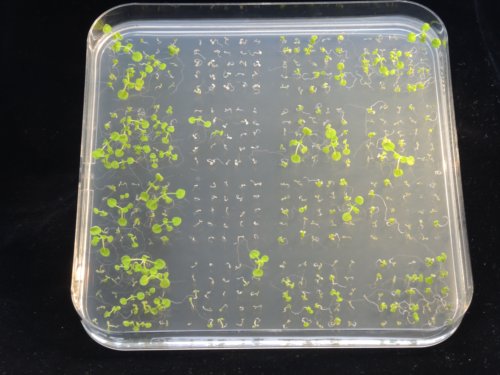Serendipita indica (Piriformospora indica) and Serendipita herbamans, fungi of the order Sebacinales, colonize the roots of many plant species. This colonization can increase the pathogen resistance of the host plant, not only in the roots but also in the leaves (systemic pathogen resistance). In addition, colonization can lead to accelerated plant development and increased growth.
We are investigating the molecular mechanisms underlying these processes.
Previous publications:
Weiss M, Waller F, Zuccaro A, Selosse MA (2016) Sebacinales - one thousand and one interactions with land plants. New Phytol 211: 20-40
Pedrotti L, Mueller MJ, Waller F (2013) Piriformospora indica root colonization triggers local and systemic root responses and inhibits secondary colonization of distal roots. PLoS One 8: e69352
Molitor A, Zajic D, Voll LM, Pons KHJ, Samans B, Kogel KH, Waller F (2011) Barley leaf transcriptome and metabolite analysis reveals new aspects of compatibility and Piriformospora indica-mediated systemic induced resistance to powdery mildew. Molecular plant-microbe interactions : MPMI 24: 1427-1439
Deshmukh S, Huckelhoven R, Schafer P, Imani J, Sharma M, Weiss M, Waller F, Kogel KH (2006) The root endophytic fungus Piriformospora indica requires host cell death for proliferation during mutualistic symbiosis with barley. Proceedings of the National Academy of Sciences of the United States of America (PNAS) 103: 18450-18457
Waller F, Achatz B, Baltruschat H, Fodor J, Becker K, Fischer M, Heier T, Huckelhoven R, Neumann C, von Wettstein D, Franken P, Kogel KH (2005) The endophytic fungus Piriformospora indica reprograms barley to salt-stress tolerance, disease resistance, and higher yield. Proceedings of the National Academy of Sciences of the United States of America (PNAS) 102: 13386-13391









